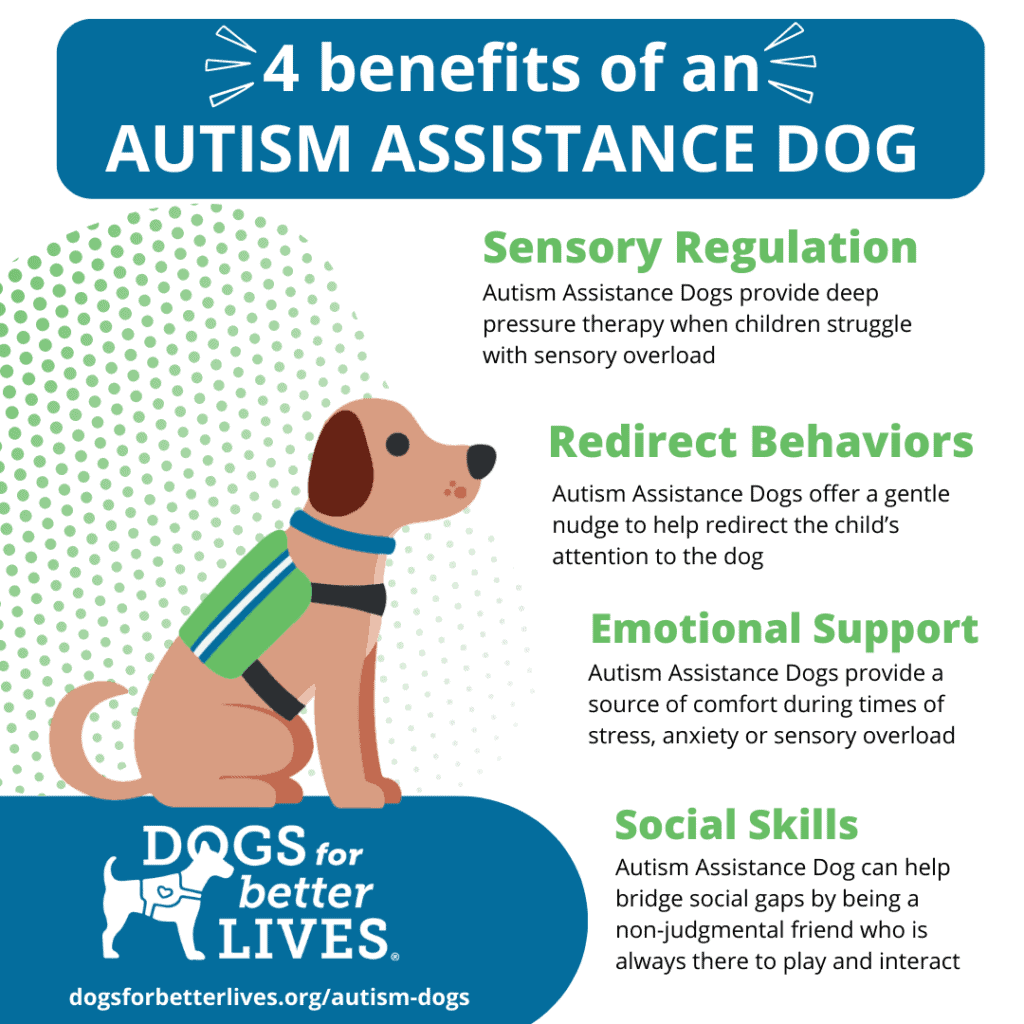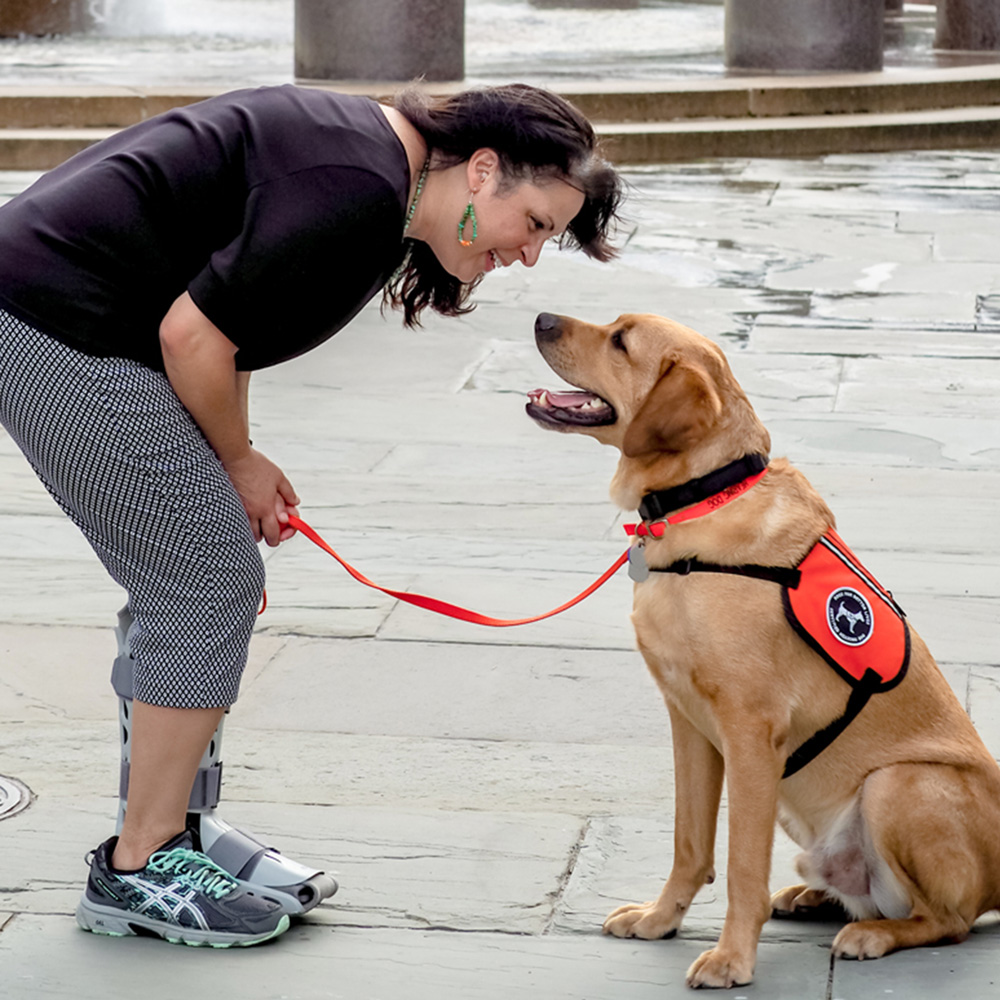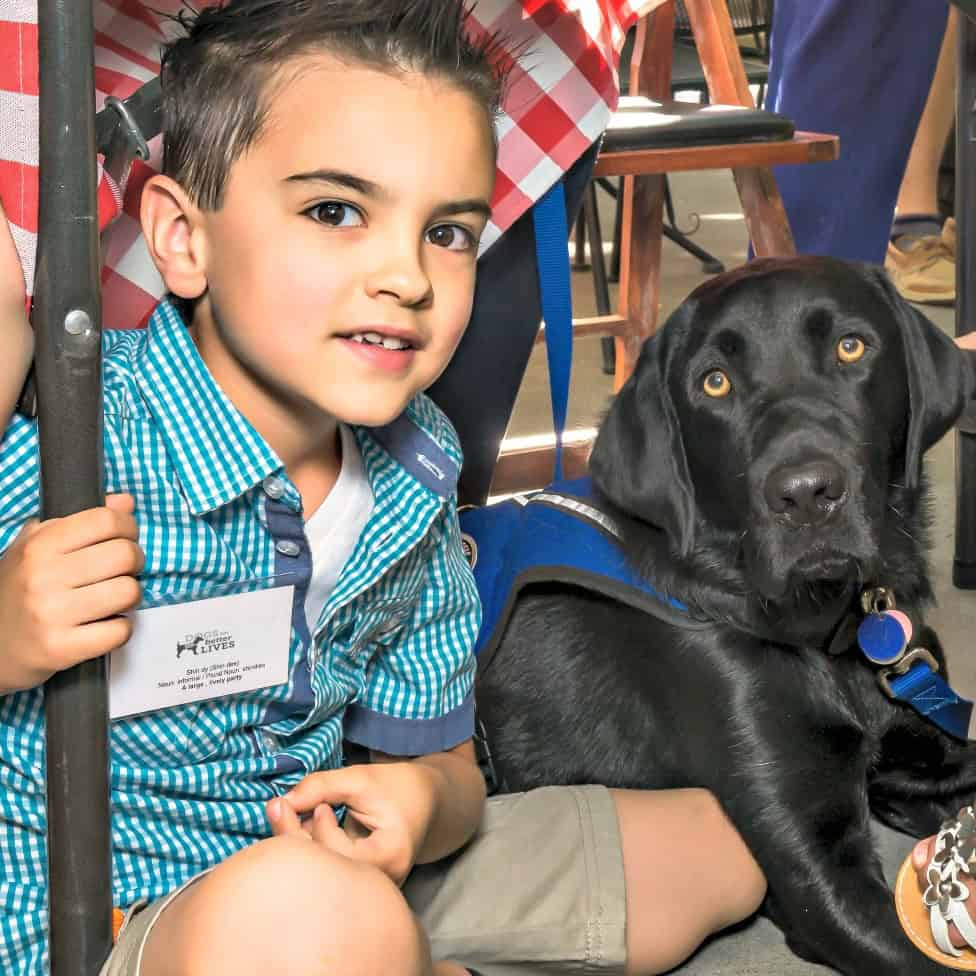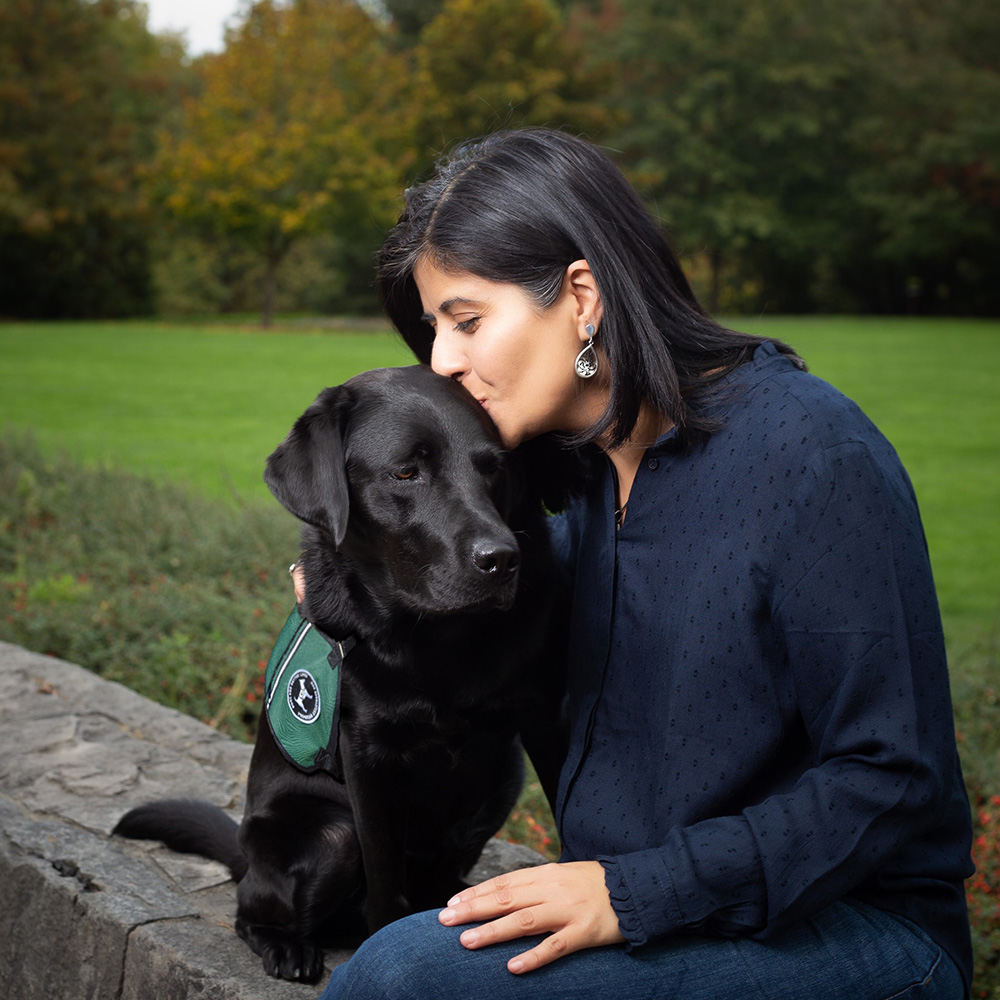Assistance Dogs have become increasingly popular as a support for children with Autism and their families. These dogs are specially trained to provide at least three tasks to assist with keeping children grounded and focused. They can also help regulate emotions and reduce anxiety. Dogs trained as Autism Assistance Dogs are calm, gentle, and patient by nature and are a perfect companion for children with Autism.
 Having an Autism Assistance Dog can provide a source of comfort for the child and their family during times of stress, anxiety, or sensory overload. There are many potential benefits to having an Autism Assistance Dog for your child. Here are just a few:
Having an Autism Assistance Dog can provide a source of comfort for the child and their family during times of stress, anxiety, or sensory overload. There are many potential benefits to having an Autism Assistance Dog for your child. Here are just a few:
- Sensory regulation: Many children with Autism struggle with sensory overload. An Autism Assistance Dog can provide deep pressure therapy and caring behaviors that can help reduce meltdowns and reduce anxiety.
- Redirect repetitive behaviors: Some children with Autism have repetitive behaviors, like flailing arms or stomping. Autism Assistance Dogs offer a gentle nudge to help redirect the child’s attention to the dog.
- Emotional support: An Autism Assistance Dog can provide emotional support and companionship for children with Autism. They can be a source of comfort during times of stress, anxiety or sensory overload, which can increase a child’s willingness to communicate.
- Improved social skills: Children with Autism often struggle with social interactions. An Autism Assistance Dog can help bridge this gap by being a non-judgmental friend who is always there to play and interact with them.
It’s important to understand that not every child would benefit from an Autism Assistance Dog. Every child is unique, and their needs and preferences should be considered before making a decision. Here are a few things to consider:
- Allergies: If your child has allergies or sensitivities to dogs, they are unlikely to be a good candidate for an Autism Assistance Dog.
- Affinity towards dogs: While Autism Assistance Dogs are trained to be gentle and patient, some children may be indifferent toward, or afraid of dogs. It’s important to consider your child’s comfort level around dogs before deciding to get an Autism Assistance Dog. The best placements occur with children who already have an affinity towards dogs.
- Lifestyle: Having an Autism Assistance Dog requires a significant time commitment from the entire family, including training, grooming and care. Consider whether your family has the time and resources to care for a dog before applying.
- Personal preference: Some children may prefer other types of support, such as therapy and/or intervention.
An Autism Assistance Dog can be a wonderful support for children with Autism, providing emotional support, improving social skills, providing a calming presence and helping with sensory regulation. However, it’s important to consider your child’s unique needs and preferences before applying for an Autism Assistance Dog. Talk to your healthcare provider or a professional who specializes in autism to determine whether an Autism Assistance Dog is the right choice for your family.
Autism Assistance Dogs are specially trained to enhance the safety and well-being of children and families living with Autism by providing a minimum of three tasks to assist with keeping children grounded and focused while presenting a social bridge for relationships and friendships. Learn more about Autism Assistance Dogs and apply to receive a dog: dogsforbetterlives.org/autism-dogs





Hello, I would love to give my son a try to see if he would be benefit from having a dog especially trained for kids with autism. My son is 4 years old and struggling with sensory issues, having repetitive behaviors, easily having tantrum moments when unexpected things happening, and lacking of social skills. I hope this service will help him improving his issues. I noticed that he loves playing with dogs so I’m looking forward to get more information about it.
Hello! The first step is applying. You can visit our page and apply at https://dogsforbetterlives.org/autism-dogs/